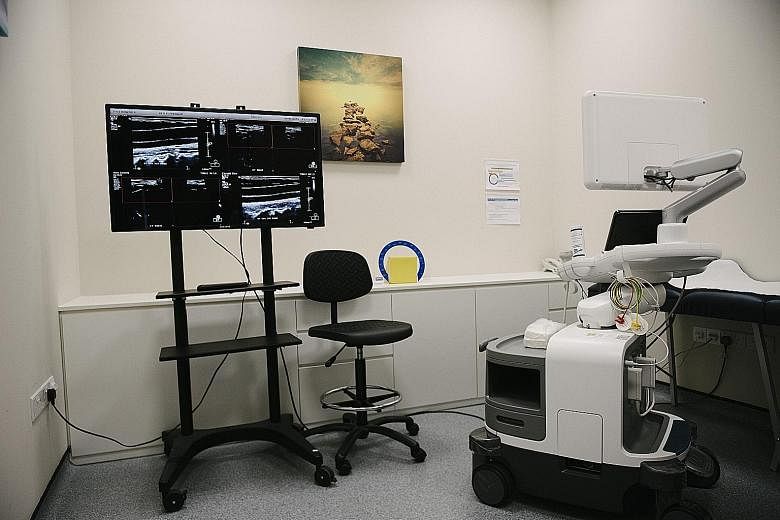Nanyang Technological University (NTU) has embarked on an ambitious 20-year study to better predict and prevent chronic diseases among Singaporeans.
This will be the first large-scale, comprehensive longitudinal health study on Asians, said its lead investigator John Chambers, with as many as 100,000 to 200,000 Singaporeans involved in it eventually.
"Landmark studies done in the US, UK and Germany do not represent 60 per cent of the world population which are not of European heritage," said Professor Chambers, a cardiovascular epidemiology expert at the Lee Kong Chian School of Medicine, set up jointly by NTU and Imperial College London.
"The genetics and medical predispositions are different," he added.
Called the Health for Life in Singapore (Helios) study, it is being conducted in the school's Population and Community Health Laboratories launched yesterday.
Housed in the medical school's Clinical Sciences Building in Novena, the suite of laboratories aims to target research on obesity, diabetes and other chronic conditions that commonly afflict Singaporeans.
It is made up of four laboratories - the Clinical Research Centre, Centre for Population Health Sciences, Centre for Primary Health Care Research and Innovation, and the Exercise Medicine and Physiology Laboratory.
Dr Amy Khor, Senior Minister of State for Health, said the launch of the laboratories is timely as "Singapore earnestly prepares for its rapidly ageing population in the next one to two decades".
In a speech at the launch, she said there is "an urgent need" to go beyond just caring for those with disease to boosting the health of the entire Singapore population.
"By 2030, we expect the number of seniors aged 65 and above to double to 900,000. With many living longer, chronic diseases such as cardiovascular disease and diabetes are rising sharply," she said.
The new facility will contribute substantially in the area of population health management and help transform the country's model of care, said Dr Khor.
Singaporeans and permanent residents aged 30 to 84 are eligible for the Helios study, which has recruited 800 participants so far and hopes to have 10,000 participants by the end of next year.
Participants will go through a comprehensive health screening.
For instance, they will have the structure and function of their organs measured. A full brain and body MRI scan as well as retina and bone density scans will also be done.
Participants will be asked about their lifestyle and dietary habits, and their blood, stool and urine samples will be stored in a biobank for future molecular analysis. They will receive a report and be informed of any disease found.
Their data will provide a comprehensive resource that can improve disease prediction, early detection, prevention and treatment of chronic diseases, said NTU.
The study hopes to work with the Ministry of Health to virtually track the health of its participants.

